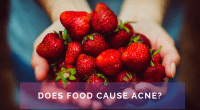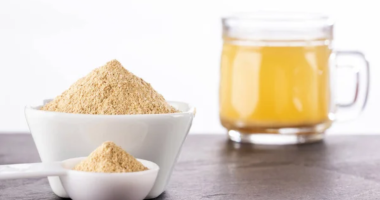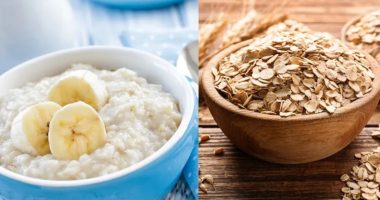6 Things Your Skin Is Telling About Your Diet – Your skin is often a reflection of the food you eat, and any changes in your diet can have a drastic impact on the way it looks and feels. A healthy diet can result in soft, supple skin with fewer wrinkles, while an unhealthy diet can lead to dry, rough skin that’s prone to breakouts. But did you know that your skin can tell you more than just how healthy your diet is? There are several things that your skin says about your eating habits that can help you identify dietary deficiencies or imbalances and make changes to improve your health. Read on to learn six things that your skin may be trying to tell you about your diet.
Dehydration
Your skin is the largest organ in your body, and it’s one of the first places that dehydration will show up. Dehydration can cause your skin to feel dry, tight, and flaky. It can also make your skin more susceptible to fine lines, wrinkles, and breakouts.
If you suspect that dehydration is behind your lackluster skin, there are a few things you can do to get your glow back. First, drink plenty of water throughout the day. Second, eat foods that are high in water content, such as fruits and vegetables. Third, use a humidifier in your home or office to help keep your skin hydrated. Finally, consider using a hydrating face mask or serum to give your skin an extra boost of moisture.
Inflammation
There are a few things that your skin can tell you about your diet and one of those things is inflammation. If you suffer from inflammatory skin conditions such as acne, eczema, or psoriasis, it might be a good idea to look at your diet and see if there are any inflammatory foods that you’re eating. Some common inflammatory foods are sugar, dairy, gluten, and soy. If you eliminate these foods from your diet, you may see a decrease in your skin inflammation.
Breakouts
There are many different ways that diet can cause breakouts. The most common way is by causing inflammation in the body. When the body is inflamed, it can lead to an increase in sebum production, which can clog pores and lead to breakouts. Diet can also cause breakouts by affecting hormone levels. Eating foods that contain lots of sugar or simple carbohydrates can cause fluctuations in blood sugar levels, which can trigger breakouts. And finally, some foods simply contain ingredients that are known to irritate the skin, such as dairy products or certain spices. If you suspect that your diet is causing your breakouts, try eliminating potential culprits one at a time to see if your skin improves.
Dullness
If you’re eating a lot of processed foods, sugary snacks, and unhealthy fats, it can show up in the form of dullness, breakouts, and dryness. On the other hand, a healthy diet full of fresh fruits, vegetables, and healthy fats can give you a radiant complexion.
If you’re noticing that your skin is looking a little dull lately, it could be a sign that you need to up your intake of fresh fruits and vegetables. Aim for at least five servings per day. You should also make sure you’re drinking plenty of water to keep your skin hydrated from the inside out.
In addition to eating more nutrient-rich foods, there are some specific nutrients that are known to be good for the skin. Vitamin C is an antioxidant that can help protect against damage from free radicals, while vitamin E can help improve skin elasticity. omega-3 fatty acids are also important for keeping skin moisturized and supple. You can get all of these nutrients from food sources or by taking supplements.
Fine lines and wrinkles
When it comes to dietary choices and fine lines and wrinkles, there are a few things to keep in mind. First, consuming too many processed foods can lead to inflammation and damage to the skin cells. This can speed up the aging process and lead to the formation of fine lines and wrinkles. Second, not getting enough antioxidants in the diet can also contribute to the formation of fine lines and wrinkles. Antioxidants help to protect the skin cells from damage, so not getting enough can leave the skin more susceptible to damage from free radicals. Finally, not drinking enough water can also lead to dehydrated skin, which can make fine lines and wrinkles more pronounced.
Dryness
Dry skin can be a sign that you are not getting enough essential fatty acids in your diet. These acids are important for keeping the skin moisturized and preventing water loss. They can be found in foods like fish, nuts, and seeds. If you have dry skin, make sure to include these foods in your diet or take a supplement.
Another possibility is that you are not drinking enough water. When the body is dehydrated, the skin is one of the first places to suffer. Make sure you are drinking eight glasses of water a day, and more if you are sweating or urinating frequently. You may also want to try a humidifier to add moisture to the air around you and help your skin stay hydrated.
If you have tried these things and your skin is still dry, it is possible that you have an underlying medical condition that is causing your dryness. If this is the case, you should see a doctor or dermatologist to get help treating your condition.
Diet and lifestyle changes to help your skin
Your skin is your largest organ, and what you eat and how you live affects its health just as much as the rest of your body. Here are six ways your diet and lifestyle may be affecting your skin, and what you can do about it:
If you’re not getting enough omega-3 fatty acids, your skin will suffer. These healthy fats are essential for keeping skin cells plump and hydrated, so make sure to include fatty fish like salmon, tuna, and sardines in your diet. You can also take a fish oil supplement to get your omega-3s.
Are you eating enough vitamin C? This vitamin is vital for the production of collagen, which keeps skin looking firm and young. Include plenty of citrus fruits, bell peppers, broccoli, and Brussels sprouts in your diet. You can also take a vitamin C supplement.
Do you get enough antioxidants? Antioxidants protect skin cells from damage caused by free radicals. Free radicals are unstable molecules that cause inflammation and lead to premature aging. To get plenty of antioxidants, eat foods like berries, dark leafy greens, nuts, and seeds. You can also take an antioxidant supplement.
Not getting enough sleep can wreak havoc on your skin. When you don’t get enough rest, your body produces more stress hormones that can make skin break out or look dull and lifeless. Make sure to get at least 7-8 hours of sleep every night to keep
Conclusion
Healthy skin is a reflection of what’s going on inside your body. Paying attention to the signals that your skin gives you can be a great indication of any dietary or lifestyle changes that need to be made. To keep your skin looking and feeling its best, make sure to get enough sleep, drink lots of water and add nutrient-rich foods into your daily diet. With just a few small steps in making healthier choices for yourself, you’ll have beautiful, glowing skin in no time. Home









